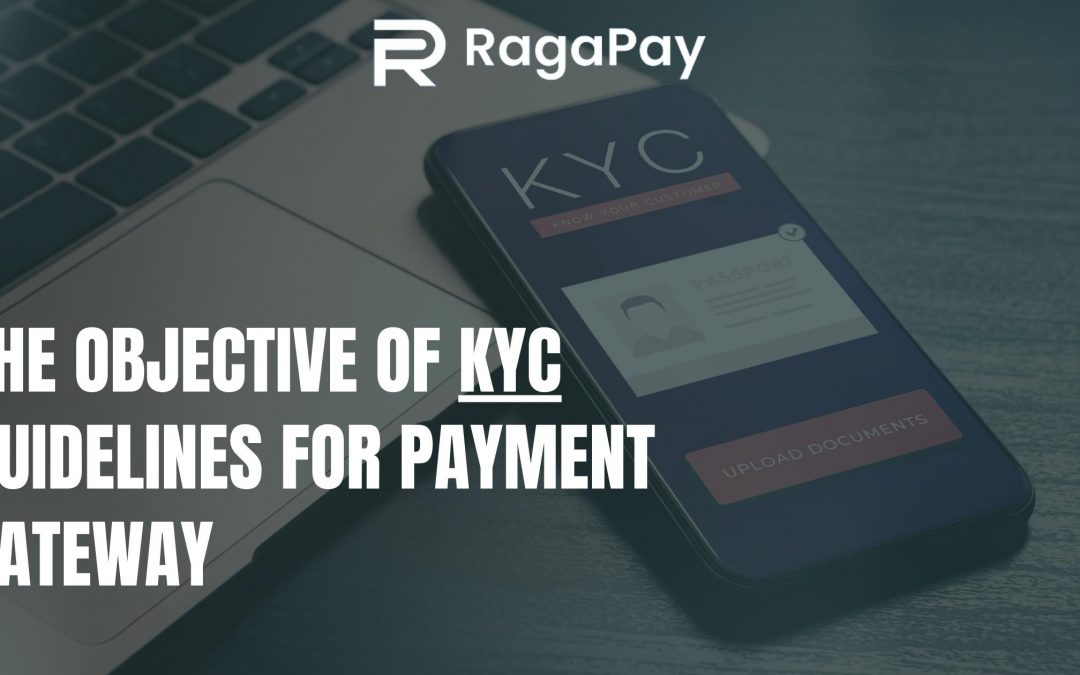Introduction:
The Know Your Customer (KYC) guidelines for payment gateways serve several important objectives that contribute to ensuring secure, compliant, and trustworthy financial transactions. KYC is a regulatory requirement designed to prevent financial crimes such as money laundering, fraud, and terrorist financing. Payment gateways act as intermediaries between merchants and financial institutions, making them critical points for implementing effective KYC processes.
Here are the primary objectives of KYC guidelines for payment gateways:
1. Identity Verification:
Know your Customer ( KYC) guidelines require payment gateways to verify the identity of both merchants and customers. This verification helps establish the legitimacy of individuals and businesses involved in transactions. Accurate identification prevents the use of fake or stolen identities for illegal purposes.
2. Risk Assessment:
KYC procedures allow payment gateways to assess the risk associated with each transaction. By evaluating the involved parties’ identities, financial histories, and activities, payment gateways can identify and mitigate potential risks, such as high-value transactions or suspicious patterns.
3. Anti-Money Laundering (AML) Compliance:
KYC guidelines are a crucial component of AML efforts. They help payment gateways detect and prevent money laundering by identifying unusual or suspicious transaction patterns, which could indicate attempts to legitimize illegal funds.
4. Fraud Prevention:
Effective KYC practices enable payment gateways to detect and prevent fraudulent activities. By verifying the authenticity of users and transactions, gateways can identify red flags that might indicate fraudulent behavior and take appropriate action to mitigate losses.
5. Terrorist Financing Prevention:
KYC guidelines play a role in preventing funds from being used for terrorist activities. By thoroughly verifying the identities of parties involved in transactions, payment gateways can help ensure that their services are not exploited for financing illegal or terrorist activities.
6. Regulatory Compliance:
Financial regulations require payment gateways to comply with KYC guidelines to maintain the integrity of the financial system. Failure to adhere to these guidelines can result in legal consequences and reputational damage.
7. Data Privacy and Security:
KYC guidelines emphasize data privacy and security. Payment gateways need to handle sensitive personal and financial information responsibly to protect users’ confidential data from breaches and unauthorized access.
8. Customer Confidence:
Adhering to KYC guidelines builds customer trust in payment gateways and the broader financial ecosystem. Customers are more likely to use services that prioritize security and compliance, enhancing the reputation of the payment gateway.
9. Prevention of Transactional Fraud:
KYC procedures help identify instances where stolen or compromised payment instruments are used. By verifying the legitimacy of the payer, payment gateways can prevent unauthorized transactions.
10. Record Keeping:
KYC guidelines often require payment gateways to maintain records of customer identification and transaction history. These records can be essential for audits, investigations, and compliance reporting.
11. Cross-Border Transactions:
For payment gateways facilitating cross-border transactions, KYC guidelines help ensure compliance with international regulations and mitigate risks associated with cross-border money movement.
Conclusion:
KYC guidelines for payment gateways are essential for safeguarding the financial system, preventing financial crimes, and fostering customer trust. By implementing robust KYC processes, payment gateways contribute to a secure and transparent ecosystem for online transactions.

